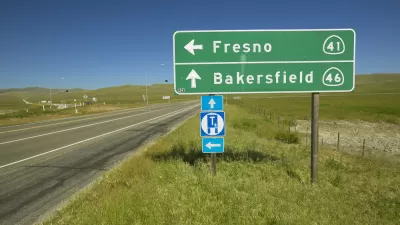The rollback of gas tax indexing is projected to lose $1 billion for the Bay State over the next decade. Initiative proponents claim that the legislature can increase the gas tax anytime, though last year's tax increase was the first since 1991.
Prior to the election, we noted that Stephen Lee Davis of Transportation for America sees the Massachusetts ballot measure as a "bellwether for efforts to raise state transportation revenue."
Nicole Dungca of The Boston Globe writes about the dire consequences to state transportation funding now that 52 percent of voters chose to support the initiated state statute.
Michael J. Widmer, president of the Taxpayers Foundation, who helped campaign against the repeal, said he believed some of the biggest transportation projects, such as the South Coast Rail project that would provide commuter rail service from New Bedford and Fall River to Boston, could now be on the chopping block.
Explaining their opposition to gas tax indexing for inflation, Holly Robichaud of Tank the Gas Tax, "said gas tax indexing was tantamount to taxation without representation," writes Dungca.
The gas tax will remain at 24 cents per gallon, plus an underground tank removal tax of 2.5 cents per gallon. Only the indexing aspect of the 2013 bill that increased the gas tax last year by three cents was eliminated.
Mayor Joseph A. Curtatone of Somerville, who campaigned against the repeal, said (Republican) Governor-elect Charlie Baker and the Legislature need to identify another funding mechanism to avoid the 'real public safety crisis' of deferred maintenance of the state’s bridges and roads," writes Dungca.
Another sign that the "high revenue potential of a vehicle-miles-traveled fee" makes this option inevitable?
[Hat tip to AASHTO Daily Transportation]
FULL STORY: Transit officials say repeal could cost $1b over decade

Study: Maui’s Plan to Convert Vacation Rentals to Long-Term Housing Could Cause Nearly $1 Billion Economic Loss
The plan would reduce visitor accommodation by 25,% resulting in 1,900 jobs lost.

North Texas Transit Leaders Tout Benefits of TOD for Growing Region
At a summit focused on transit-oriented development, policymakers discussed how North Texas’ expanded light rail system can serve as a tool for economic growth.

Why Should We Subsidize Public Transportation?
Many public transit agencies face financial stress due to rising costs, declining fare revenue, and declining subsidies. Transit advocates must provide a strong business case for increasing public transit funding.

How to Make US Trains Faster
Changes to boarding platforms and a switch to electric trains could improve U.S. passenger rail service without the added cost of high-speed rail.

Columbia’s Revitalized ‘Loop’ Is a Hub for Local Entrepreneurs
A focus on small businesses is helping a commercial corridor in Columbia, Missouri thrive.

Invasive Insect Threatens Minnesota’s Ash Forests
The Emerald Ash Borer is a rapidly spreading invasive pest threatening Minnesota’s ash trees, and homeowners are encouraged to plant diverse replacement species, avoid moving ash firewood, and monitor for signs of infestation.
Urban Design for Planners 1: Software Tools
This six-course series explores essential urban design concepts using open source software and equips planners with the tools they need to participate fully in the urban design process.
Planning for Universal Design
Learn the tools for implementing Universal Design in planning regulations.
Ascent Environmental
Borough of Carlisle
Institute for Housing and Urban Development Studies (IHS)
City of Grandview
Harvard GSD Executive Education
Toledo-Lucas County Plan Commissions
Salt Lake City
NYU Wagner Graduate School of Public Service



























